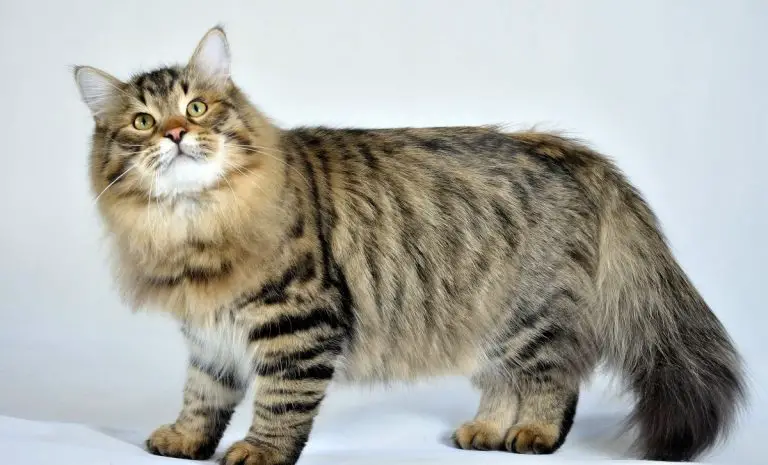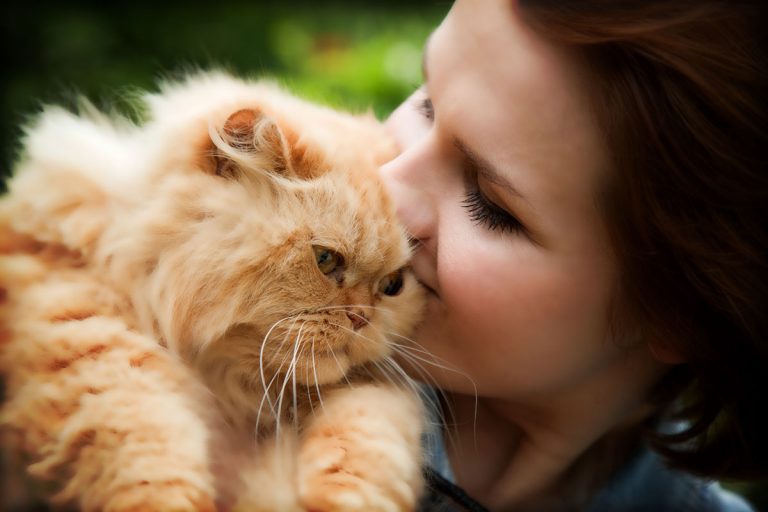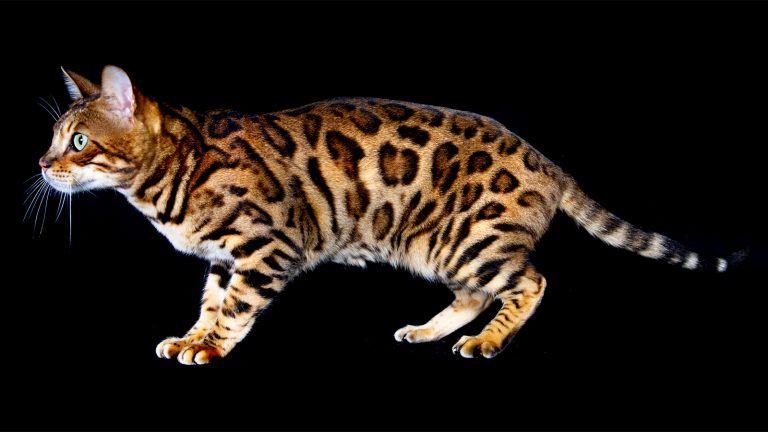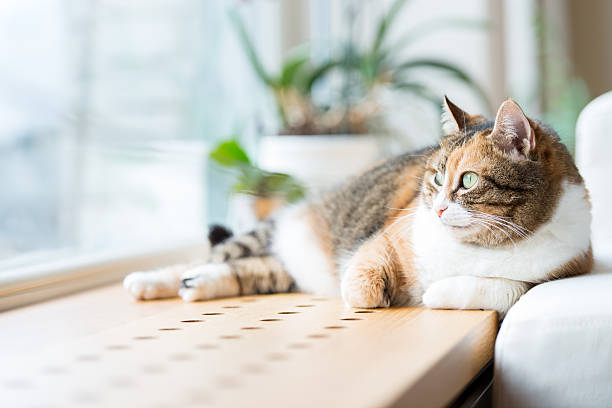Savannah Cat Breed Origin | Savannah Cat Breed Size & Lifespan
Savannah Cat Breed Origin | Savannah Cat Breed Size & Lifespan
Savannah Cat Breed
Savannah cat is an exotic cat that was first bred in 1986, and it’s a cross between an African Serval and a housecat. It is a hybrid breed, meaning that at least one of its parents is not purebred. The Savannah cat was originally bred to look like an African Serval, but it has been bred into many different variations. While these cats are very similar to a housecat in appearance, they have a few different traits. Below are some facts about this breed of cats.
The Savannah cat is a hybrid breed that was first bred in 1986. The first two parents of the breed were a male serval named Magic and a female domestic longhair called Hettie. While it is believed that the reason for the breeding was to create aggressive animals to sell as pets, that was not the case, and before long, there were many pet Savannah cats.
Savannah cat Breed Characteristics
Savannah Cat Breed colors can be black, yellow, brown, orange, cream or red. Many Savannah cats have no body stripes, and the patterning of their fur is in different colors. This cat has a triangular head with big ears that are set wide apart.
Also, check out: Abyssinian Cat Breed Profile.
The Savannah cat has a thick neck and a large head with a long nose. This breed’s teeth are wickedly sharp, and it has long whiskers that hang all the way down its face.
They have a little tail and legs that are long and slender. The Savannah cat is very agile. Their paws can be so long and slender that they look like they have no feet. Savannah cats have three toes on their front paws, and if you look close enough, you can see them.
The Savannah cat has very few vocalizations compared to other cats. It makes a meowing sound, but not much more than that. Even stranger, the Savannah cat will sometimes produce a sound that sounds like a bird chirping, and it will do it just once in a while.
Savannah Cat Breed Behaviors
Savannah cats are very extroverted, and for the most part, they get along with animals and people very well. They love to be near their owners in a loving way. Savannah cats are amiable, but they can be aggressive if they are not properly trained. For this reason, they must be socialized early on so they can see many different people and animals before they get older. These cats are very intelligent, and they learn quickly.
Savannah cats get along well with other pet animals, both domestic and wild, as long as the owner can keep the Savannah cat in good enough training and a healthy environment in which the Savannah cat can live. It is easier for a Savannah cat to live outside than it is for a normal housecat because they love being near their human at all times.
Savannah cats are very popular cat breeds, and they are an excellent choice to have as a pet because of their friendly nature and wide range of colors.
Savannah Cat Breed Facts
A Savannah cat is a domestic cat with the color pattern of a serval. This patterning involves 3 distinct colors: black, agouti (red), and pale-cream brown (almost white in some cats). The head’s fur is generally white or cream-colored, tan around the ears, and highly mottled with black or red as an undercoat. The eyes are generally a solid copper color, and the pupil is a long, rectangular shape. The ears are black-tipped with small tufts of white at the tips.
The Savannah cat is a relatively new variety of felines descended from African serval cats and domestic shorthairs. The Savannah came about by crossing the serval with a domestic medium-hair; however, only the African serval and domestic shorthair were used. The Savannah has a broad triangular head with a slight muzzle and a straight snout.
Its eyes are large and almond-shaped, with slanted pupils, while its ears are long, wide in the front, and rounded at the back. The tail is large, with tufts of fur at the tip. The legs are very long (the serval’s legs are considerably longer) and bent at the knees. Savannahs have long, thick bodies and large paws.
The Savannah cat is very muscular, has an enlarged bone structure and big paws. Savannahs have a wide forehead, high cheekbones, a straight nose, and full cheeks. The kinked tail starts thick at the base and tapers to a black tip. The incisors are very long, and the top set of teeth are often a different color from the bottom two sets.
Savannah cats have big padded feet with 3 toes on each foot. The feet are strong enough to support a serval’s body on all fours and especially on their back legs. Savannah cats have strong claws that fit comfortably in tree branches, which indicates that they were domesticated from wild animals. Also, a Savannah cat is more likely to hunt its prey in trees than other felines.
The Savannah cat is a very popular cat breed and is known to have short hair and spots. They are also known for their very large paws and long legs. Savannah cats are very good hunters because they were domesticated from the serval with a prey drive that is over nine times stronger than that of other cats. Savannah cats are also known for their long tails.
The breeding of the Savannah cat began as a result of the serval being domesticated. The serval could not gain favor with American breeders, and although it is an African cat, the people were not interested in importing servals.
As a result, they began to crossbreed them with domestic shorthair cats from America. They found that this bred offspring resembled less like the serval and more like a domestic cat while maintaining many of their hunting instincts.
Savannah Cat Breed Behaviors
The Savannah cat is generally an active, sensual animal that has been bred from a serval to be more friendly and agreeable. They are very affectionate but are often very aloof with strangers or other cats.
Socialization early in life will help decrease this behavior. Savannahs have good hearing and acute senses of sight and smell, and a keen sense of balance when on all fours. They are very trainable, but it is important to begin early with socialization and training.
Savannah felines are not the same as servals. Serval has a dense coat of long hair, while the Savannah has a lustrous coat of short hair because of its lack of undercoat. Most Savannah cats have white underbelly fluff at birth and lose this coat rapidly.
The characteristic mottled pattern appears with age as the adult cat’s fur grows in length and becomes denser. Savannah cats are generally a calm, intelligent breed.
Savannah Cat Breed Lifespan
How long do savannah cats live for?
The Savannah cat has a life expectancy of 20 years, King said, can be seen by regular veterinarians and receive the same vaccines as other cats. They can have short lives with a lack of care and nutrition. Savannahs require mostly veterinary attention, and because they are not as mobile as servals, they require more maintenance than other breeds of cats.
Savannah Cat Breed Size
Savannah cats typically reach between 10 inches to 17 inches in height, weighing between 8 and 25 pounds at full adult size. The generation of Savannah largely dictates its overall size. Savannah cat size varies by breed, but most males can grow up to 25 lbs and females 20lbs.
Generations that are most closely related to the Serval (and wild cat) are larger than those furthest removed.
Where Savannah Cat Breed are Found
Savannah cats have been known to be a popular pet and exotic cat for many people worldwide, including in Europe, Asia, and North America. A Savannah cat is generally expensive to purchase and keep due to the expenses of maintaining its diet and veterinary bills.
Savannah Cat Breed Care
Savannahs are very loving, affectionate animals and can be very playful with their owners but can also be more independent than other types of cats. Savannahs have been known to be curious, eager to explore new places, energetic and affectionate.
Savannahs can also be very active and can easily do things such as sliding down the stairs or jumping onto a piece of furniture, making it important to have proper fencing for them. The Savannah cat is very curious and will tend to want to explore new things.
Savannah cats are said to have been domesticated from the serval, which is an endangered species in Africa. As a result, it is illegal to own one without a Canadian or US government permit.
Why are Savannah Cats illegal?
The reason why Savannah cats are illegal has to do with their hybridization. The Savannah cat is illegal in the United States due to the perceived genetic flaws and hybrid status. It is not a natural bred cat in the sense that it was created and not born. It has a wild or hybrid look because of the parent cats, the serval, and the domestic cat.
Savannah cats were first domesticated in the early 1980s, but they are not yet considered domestic animals. They are not allowed to be imported to, for example, Tennessee’s state and those born or live in the state have to be neutered.
Are savannah cats dangerous?
Savannah Cats are not dangerous. They are a hybrid cat breed that is the result of crossing an African Serval and a domestic cat. Because Savannahs can be unpredictable, it’s important to understand their natural instincts before adopting one into your home.
Savannah cats may seem like fierce predators, but their natural instincts are not as strong as those of other domesticated animals such as dogs or even house mice! They are actually more likely to flee if approached by humans than attack them. That’s because these cats aren’t used to living in close proximity with people the way that traditional pets like dogs or horses might be.
Savannahs enjoy playing games and hunt small prey, but it is unlikely that they would ever harm a human being without provocation. They are very intelligent and social. Savannah cats can be domesticated, and they will be playful and fun.
Savannah Cat Temperament & Maintenance
There are many misconceptions about Savannah cats. The truth is that Savannah cats are very docile. It was developed by crossing serval cats (a type of African wild cat) with domestic shorthair cats in order to produce an animal that looks just like a leopard but has the temperament of a house cat.
They are not usually a problem for households with other pets. Savannah cats may get territorial if they have not been socialized to get used to other pets. Some Savannah cats can be aggressive because they are not neutered, but they make for great family pets.
Other common traits of a Savannah cat are they tend to have a large appetite, are not as vocal as other cats, and are relatively clean animals. On the downside, Savannah cats are very energetic and demanding attention. Lastly, they require more maintenance than the average cat.
The care requirements for the Savannah cat will vary depending on the owner. It is best that individuals who have had little experience with pets likely should not consider owning a Savannah cat because of its unique nature. It is important to provide the Savannah cat with a clean environment where it can express its wants and needs.
Savannah Cat Diet
There has been a debate with regards to the Savannah cat’s care requirements. They don’t need to be bathed very regularly. However, it is important to clean the cat’s face and maintain its ear canal with cotton balls once per week or when needed. It is important to clean their ears because it can be a health concern if they become infected.
It is also important that people provide these cats with dietary supplements because they normally have a high protein level. This will ensure that the cat maintains good health due to the high demands required for their bodies to function properly. The Savannah cat also needs access to fresh water at all times.
The Savannah cat can be very vocal, thus making it an excellent pest killer, and enjoys playing with its owner quite often. It is best to socialize this cat as a kitten so it will be able to live well with other pets and people. Savannah cats are very curious and intelligent. The Savannah cat needs proper stimulation, which can be achieved by providing it with more toys and allowing them outside to exercise its hunting instincts.
Are serval cats dangerous?
A Serval is defined as a large African cat that is found in the savanna, which makes up an area the size of Western Europe. The serval is not only the largest of the African wild cats, but it also has the longest legs and the longest tail. Servals have been reported to jump over 5 feet into the air. This is the highest vertical jump of any cat in the world.
Servals are not dangerous because they can’t attack humans or other animals. They are very shy, and most would never attack humans. Servals are not dangerous because they can’t attack humans. However, they can be dangerous to other animals.
Serval cats prey on smaller animals, especially rodents. They have a strong instinct to hunt and will use their speed to catch their prey.
Serval cats have a life span of around 15 years, which is comparable to a domestically-kept dog. The serval is the world’s largest cat, reaching up to 3 feet and 3 feet tall at the shoulder.
Are Savannah cats aggressive?
Savannahs are not inherently aggressive, but like any other pet, they have traits that may make them more or less likely to be aggressive than other breeds. Some Savannahs can be stubborn or show signs of territoriality, and this too may make them more aggressive than other cats.
However, not all pet owners are aware that Savannah cats can be aggressive. Savannah cats are a cross between an African Serval and a domestic cat. As a pet owner, you should be prepared for your Savannah cat to exhibit various traits of both the Serval and the domestic cat.
One of these traits is aggressiveness. Many veterinarians say that Savannah cats are on par with domestic.
Savannah Cat Health Problems
Savannah cats are not quite as healthy as other domesticated cats. This is mainly due to the fact that they are not fully domesticated. Savannah cats are categorized as semi-wild animals. Unfortunately, this means they are more prone to developing health problems.
Some Savannahs may also be prone to developing health problems because their genes are not pure. Some Savannahs can have a gene from a serval and a gene from a domestic cat.
There are many Savannah cat health problems often caused by the low genetic diversity in the breed. There are a few known genetic defects that are often seen in the breed, though many more are likely unknown.
These unhealthy mutations can lead to eye problems, shortened life expectancy, and urinary tract infections. Early spaying or neutering is greatly recommended to avoid reproductive disorders.



